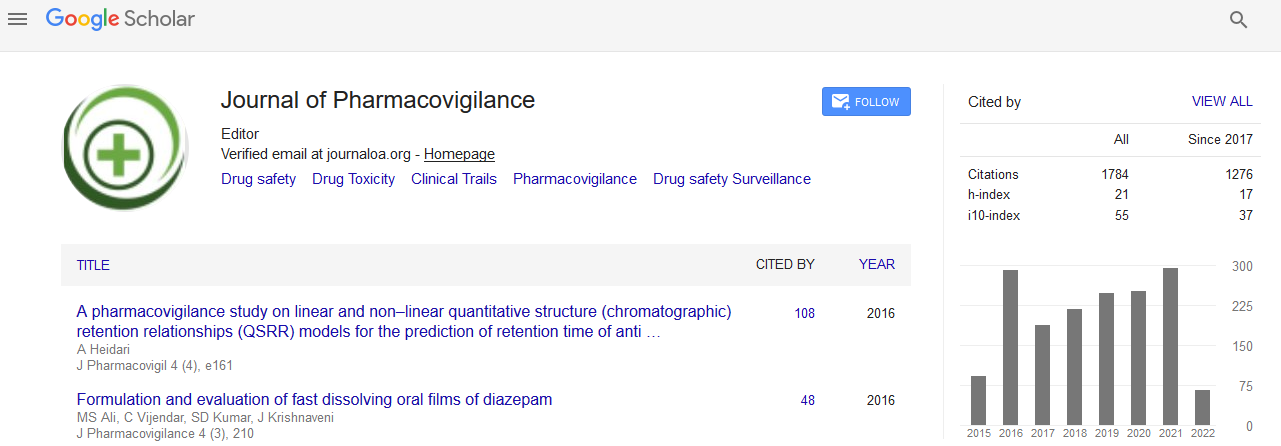Indexed In
- Open J Gate
- JournalTOCs
- The Global Impact Factor (GIF)
- RefSeek
- Hamdard University
- EBSCO A-Z
- OCLC- WorldCat
- Publons
- Euro Pub
- Google Scholar
Useful Links
Share This Page
Journal Flyer

Open Access Journals
- Agri and Aquaculture
- Biochemistry
- Bioinformatics & Systems Biology
- Business & Management
- Chemistry
- Clinical Sciences
- Engineering
- Food & Nutrition
- General Science
- Genetics & Molecular Biology
- Immunology & Microbiology
- Medical Sciences
- Neuroscience & Psychology
- Nursing & Health Care
- Pharmaceutical Sciences
Capacity for a global vaccine safety system: The perspective of national regulatory authorities
2nd International Conference and Exhibition on Pharmacovigilance & Clinical Trials
November 18-19, 2013 Hilton San Antonio Airport, TX, USA
Alexander Borda-Rodriguez
Accepted Abstracts: J Pharmacovigilance
Abstract:
Confidence in vaccine safety is critical to national immunization strategies and to global public health. To meet the Millenium Development Goals, and buoyed by the success of new vaccines produced in developing countries, the World Health Organization has been developing a strategy to establish a global system for effective vaccine pharmacovigilance in all countries. This paper reports the findings of a qualitative survey, conducted for the WHO Global Vaccine Safety Blueprint project, on the perspectives of national regulatory authorities responsible for vaccine safety in manufacturing and procuring countries. Capacity and capabilities of detecting, reporting and responding to adverse events following immunization (AEFI), and expectations of minimum capacity necessary for vaccine pharmacovigilance were explored. Key barriers to establishing a functional national vaccine safety system in developing countries were identified. The lack of infrastructure, information technology for stable communications and data exchange, and human resources affect vaccine safety monitoring in developing countries. A persistent ?fear of reporting? in several low and middle income countries due to insufficient training and insecure employment underlies a perceived lack of political will in many governments for vaccine pharmacovigilance. Regulators recommended standardized and internationally harmonized safety reporting forms, improved surveillance mechanisms, and a global network for access and exchange of safety data independent of industry. Key Words: Vaccine safety, pharmacovigilance, adverse events following immunization, global health, fear of reporting and Political will


